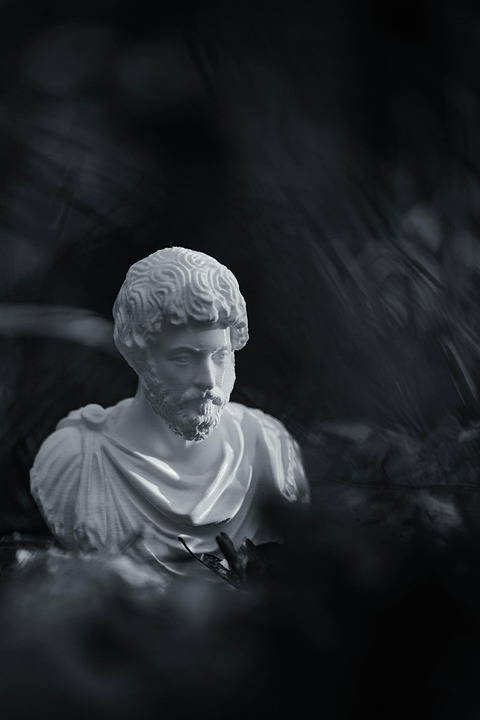Existentialism in Everyday Life: Finding Meaning in a Chaotic World
Existentialism, a philosophical movement that emerged in the 20th century, grapples with the inherently chaotic and absurd nature of human existence. At its core, existentialism posits that individuals are responsible for creating their own meaning in a world that often feels devoid of it. Today, as we navigate the complexities of modern life—marked by rapid change, uncertainty, and existential dread—existentialist principles resonate more than ever.
Understanding Existentialism
Existentialism encompasses the works of philosophers like Jean-Paul Sartre, Simone de Beauvoir, and Albert Camus, who explored themes of freedom, choice, and the search for authenticity. A key tenet of existentialism is the idea that existence precedes essence: we are not born with predefined purposes or meanings, but rather, we must forge our paths through our choices and actions.
This perspective liberates individuals, suggesting that despite life’s absurdities, one can embrace freedom and responsibility. In an age where traditional structures—be they religious, social, or political—are often questioned or dismantled, existentialism offers a compelling framework for understanding our place in the world.
Chaos and Uncertainty
Living in the 21st century means confronting a world marked by unpredictability. From global crises like climate change and pandemics to personal challenges such as job instability and family dynamics, chaos can feel overwhelming. Existentialist thought reminds us that this chaos is a fundamental aspect of life; it’s not something to be feared but rather confronted head-on.
Sartre famously proclaimed, “We are condemned to be free.” In other words, while we may not control external events, we can control our responses and choices. Embracing this freedom enables us to create meaning even amidst uncertainty. Instead of succumbing to despair, we can choose to act, redefine our values, and pursue what truly matters to us.
Creating Personal Meaning
Finding meaning in a chaotic world requires introspection and conscious decision-making. Here are some practical ways to integrate existentialist ideas into everyday life:
1. Reflect on Your Values
Take time to evaluate what you truly value. What brings you joy and fulfillment? Reflecting on these questions allows you to align your actions with your beliefs, creating a life that feels authentic. This process of self-discovery acts as a guiding compass in a world rife with distractions.
2. Embrace Authentic Relationships
Building genuine connections with others fosters a sense of belonging. Engage in conversations that matter, challenge societal norms, and share your vulnerabilities—this deepens your relationships and enriches your life. Authenticity in relationships enhances your experience, creating a support system that can help navigate chaos.
3. Confront Fears and Take Risks
Stepping outside your comfort zone can lead to growth and new experiences. Whether pursuing a new career path, experimenting with creative projects, or simply changing daily routines, facing your fears opens up possibilities for meaning-making. It empowers you to rewrite your narrative rather than passively accept circumstances.
4. Practice Mindfulness
Mindfulness encourages living in the present moment, helping us appreciate the beauty in the chaos. This practice fosters awareness of our thoughts and feelings, allowing for deeper connections with our inner selves and the world around us. By grounding yourself in the present, you can cultivate resilience in times of uncertainty.
5. Engage in Creative Expression
Artistic pursuits can be powerful vehicles for expressing existential themes. Whether through writing, painting, or music, creativity allows exploration and articulation of human experiences, helping to make sense of chaos. Engaging in creative expression serves as both a coping mechanism and a means of connecting with others.
The Role of Choice and Responsibility
Central to existentialism is the emphasis on choice and responsibility. In a world that often seems trivial or devoid of inherent meaning, the act of making conscious choices becomes an assertion of agency. Every decision we make—big or small—contributes to the narrative of our lives.
Existentialists argue that recognizing this responsibility can be liberating. It encourages individuals to take ownership of their lives, acknowledging that they have the power to create meaning for themselves. This realization can transform feelings of helplessness or despair into motivation to pursue a meaningful existence.
Existentialism and Mental Health
In recent years, the principles of existentialism have gained traction within the fields of psychology and mental health. Therapeutic approaches that incorporate existential thought can help individuals navigate feelings of anxiety, depression, and existential crisis.
These therapies often focus on helping individuals explore their values, confront fears, and embrace responsibility. By encouraging clients to find personal meaning in their struggles, therapists can guide them toward a sense of purpose and fulfillment—even in the face of adversity.
Navigating Complexity with Existential Tools
Existentialism provides valuable tools for navigating the complexities of modern life. In a world where uncertainties abound, these tools can offer clarity and direction:
-
Journaling: Writing can be an effective method for exploring thoughts and emotions. Journaling provides a dedicated space for reflection, allowing individuals to grapple with their experiences and derive meaning from them.
-
Philosophical Discussions: Engaging in discussions about existential themes—whether with friends, in study groups, or online forums—can deepen understanding and inspire new perspectives. Talking through ideas helps solidify personal beliefs and fosters connection.
-
Community Involvement: Participating in community service or volunteer work can instill a sense of purpose. Helping others often leads to a greater appreciation of one’s own life and values, reinforcing the importance of connection and shared human experience.
- Exploration of Spirituality: While existentialism often critiques traditional religious structures, exploring personal spirituality can be a source of meaning. Whether through meditation, nature walks, or personal reflection on life’s mysteries, seeking spiritual understanding can enhance one’s sense of belonging.
Conclusion
Existentialism invites us to embrace the ambiguity of life and take charge of our destinies. In a world rife with uncertainty, we can find meaning through our choices, relationships, and expressions. By integrating existential principles into our everyday lives, we can navigate the chaos with a deeper sense of purpose, crafting a narrative uniquely our own.
As we confront the complexities of modern existence, the lessons of existentialism remind us that we are not mere passengers; we are the authors of our stories. In doing so, we not only discover meaning for ourselves but also inspire others to pursue their paths in this unpredictable yet profoundly beautiful journey called life.
Ultimately, existentialism teaches us that even amidst chaos, we have the capacity to choose, reflect, and create—a timeless reminder that resonates as we strive to find meaning in our ever-evolving world.


























Add Comment